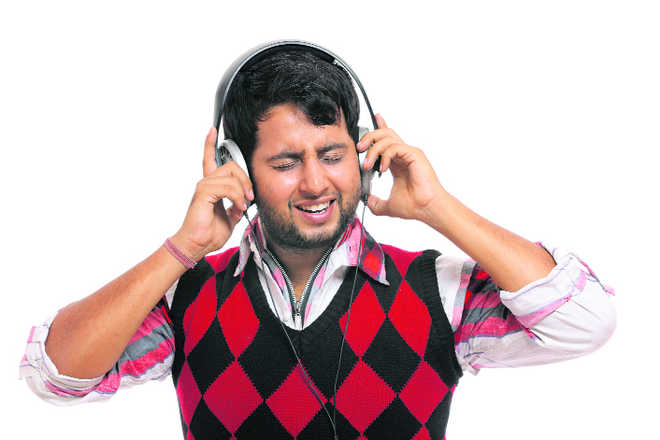
Alluring notes: Most youngsters think listening to western music is cool
Rachna Singh
Other than the ubiquitous jeans and T-shirts, teenagers and youngsters today can be seen sporting iPods and headphones. Walking, jogging or even studying, they are always listening to music. However, the GenNext seems to be more inclined towards western music genres like pop, rock, heavy metal et al. Western music loyalists will promptly reel of the latest music releases of bands like Maroon Five or Coldplay but be flummoxed at the mention of Indian classical greats like Kishori Amonkar or Rashid Khan. Young music wannabes are comfortable playing a guitar or a keyboard but not a sitar or tabla.
Western music is ‘cool’
Why has our young generation moved away fromour strong classical tradition ? Western music signifies a movement away from rigid tradition to new-age modernity for most youngsters. Mitali (name changed), a western pop fan, studying in a convent school in Lucknow, sums up the psyche of the new generation “Western music is ‘cool’ and ‘hip’. It is a sign of progress.”
Easy availability
Another important reason is the high degree of exposure to western music on account of its easy availability and access via internet. Akash, a student of PEC University of Technology, says, “YouTube and gaana.com have the latest top-of-the-charts songs and albums of western pop and rock. Sites like Torrent (now banned) allow easy download of music.” TV music channels air western music 24/7. This music, supported by eye-catching visuals, strongly impacts the impressionable youngsters.
Sociologist’s take
Sociologist Leonard B. Mayer believes that the love affair with western pop music has its genesis in the prevailing ‘living-for-the-moment’ attitude of contemporary society. The adolescent desire for ‘instant gratification’ in such a culture creates a psyche where there is little tolerance for music that is difficult or involves effort. In such a culture easy-to --hum music with repetitive rhythms becomes popular. Amita (name changed), a student of classical vocal music in Apeejay College of Fine Arts, Jalandhar, says “Indian classical music is extremely complex and requires constant practice or riyaz. It cannot be rendered by someone untutored in the intricate arrangement of notes or swaras”. It, therefore, stands to reason that genres of western music that foster a passive and casual listening experience with dance beats thrown in for good measure are embraced with great fervour.
Return to roots
Some youngsters are, of course, coming back to the classical fold. Nivedita Biswas of Kolkata, who trained in Rabindra sangeet, feels that initiatives like that of SPICMACAY (Society for the promotion of Indian Classical Music and Culture among Youth) have helped to foster an understanding and love for classical music and dance among the young generation. Free performances by great artists like Pandit Jasraj or Zakir Hussain reveal the heterogeneous tapestry of classical music. Lecture demonstrations (lecdems) provide an easy insight into the nuances of classical music. Organisations like the National Centre for Performing arts (NCPA) and the Chandigarh-based Pracheen Kala Kendra with its tradition of baithaks have also been instrumental in making the youngsters appreciate their legacy of classical music.
Television music shows like Sa Re Ga Ma, Indian idol, The Voice or Coke Studio have reawakened interest in our classical tradition as the music repertoire includes songs with a strong classical base. YouTube now can boast of a robust database of classical vocal bandishs. Bollywood composers, although they experiment with western music, mostly stay within the ambit of Indian music and have influenced a return to the roots.
A global recognition of the Indian classical tradition has also made the younger generation more accepting of our inheritance. The Beatles-Ravi Shankar tie-up and AR Rehman’s music in Slum Dog Millionaire made people sit up and take note. Kevin Kiner, (Emmy nominated music composer) who learnt sitar, says that “Indian music has freshness in each of its composition, a quality that musicians in the west lack.” So GenNext is slowly but surely beginning to value its classical music tradition with its strong guru-shishya parampara and its centuries’ old raga and tala legacy.



























